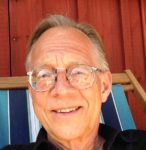
By HANS DUVEFELT, MD
We knew that the most powerful way to provide substance abuse treatment is in a group setting. Group members can offer support to each other and call out each other’s self deceptions and public excuses, oftentimes more effectively than the clinicians. They share stories and insights, car rides and job leads, and they form a community that stays connected between sessions.
Participants with more experience and life skills may say things in group that we clinicians might hesitate saying, like “Now you’re whining” and “Time to put on your big boy pants”. They can become role models by being further along in their recovery and by at the same time revealing their own fear or respect for the threat of relapse.
What has also happened in our clinic, entirely unplanned, was that after an informational meeting where we explained the group model and had a national expert physician speak about opioid recovery, several parents raised their hand and said there should be a group for families, too.
We listened and within a few months we started such a group and now, a year and a half into it, the group is co-led by a few of our patients, who naturally had become leaders of the patient group earlier.
There is magic in having these more experienced patients explain to our sometimes bewildered parents and family members how the addicted and recovering mind works, not from having seen it a hundred times, like the clinicians, but by actually having lived it.
The positive feedback and appreciation of this, our “Friends and Family” group has elevated these experienced patients to a mentor role now also for the families trying to be the most help for their loved ones in recovery.
Our biweekly conversations are turning the spotlight on the small and large victories that come with recovery and have put the challenges in perspective through stories of the ultimate successes these mentors have had themselves.
This week, my Tuesday patient group and the Friday Friends and Family group will be held without the two clinicians who usually run the groups and also without our medical assistant, who herself plays a crucial role as both confidant and voice of the program. A stand-in clinician and a covering medical assistant will be there and I will be there virtually as usual through video conferencing.
The glue that will hold everything together will be our informal peer counselors, and I have no doubt the groups will continue as if nothing had changed because of the momentum these folks have brought to our endeavors.
They know how much they mean to all of us. By sharing the experience of their own recovery, they have breathed irreplaceable life into these groups to sustain them even if some of the facilitators are on vacation.
Hans Duvefelt is a Swedish-born rural Family Physician in Maine. This post originally appeared on his blog, A Country Doctor Writes, here.

